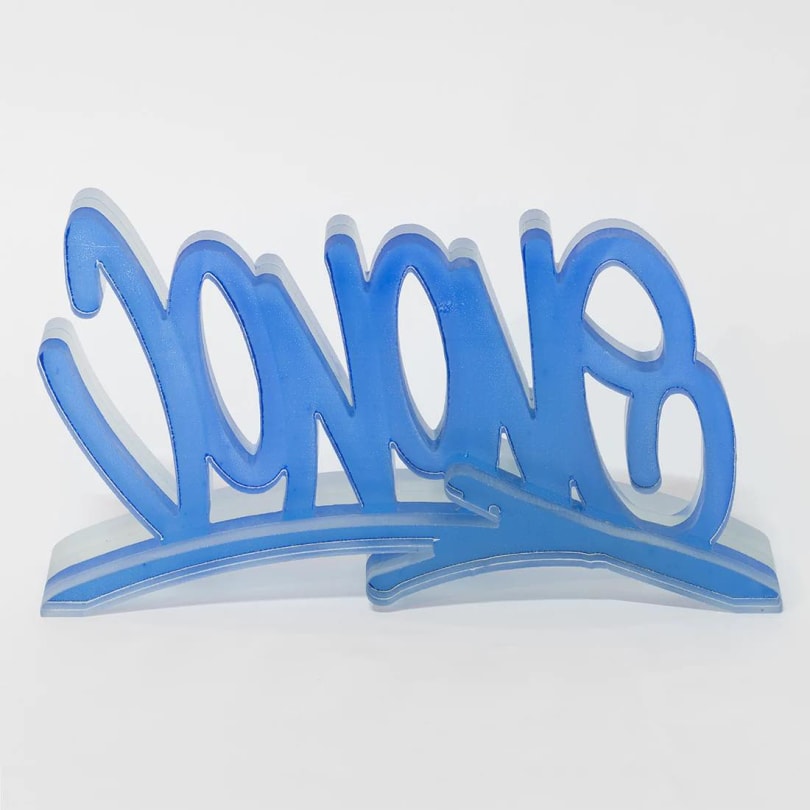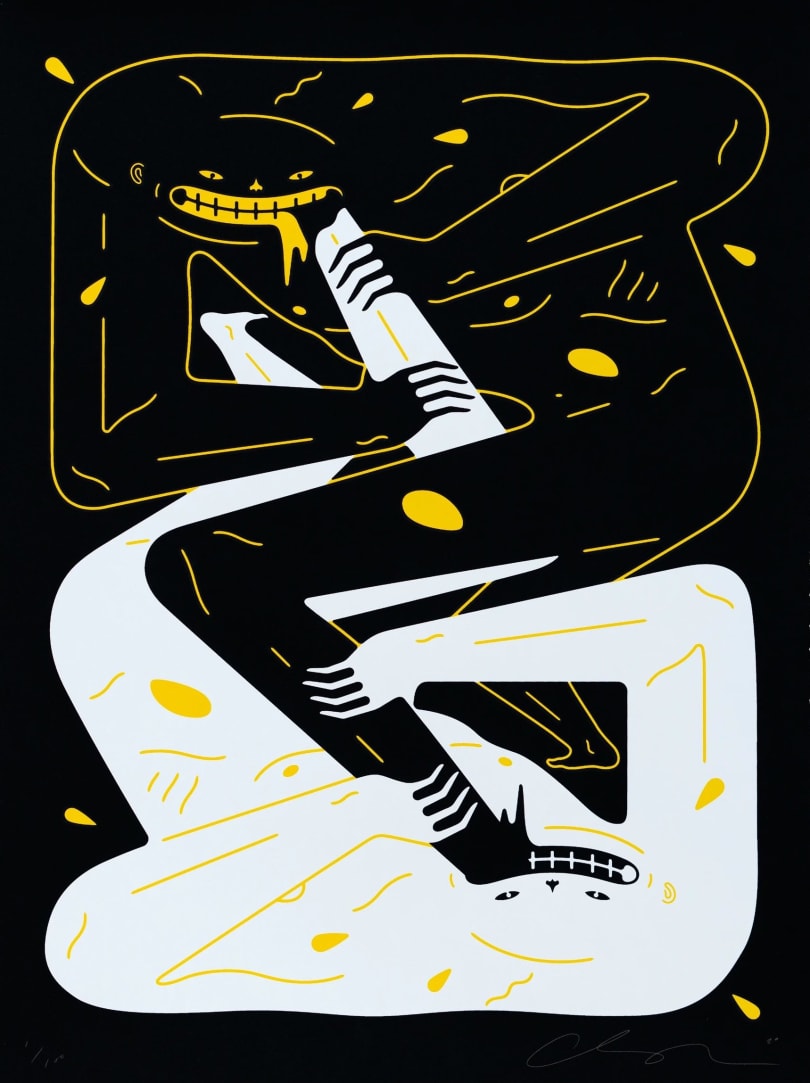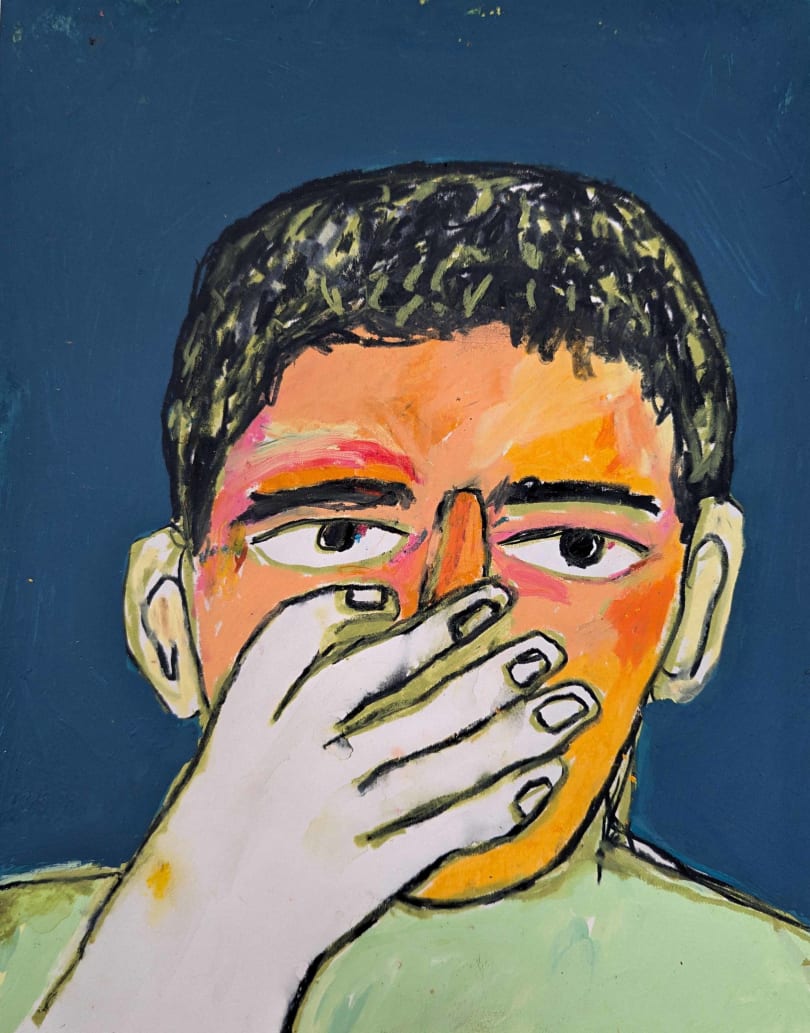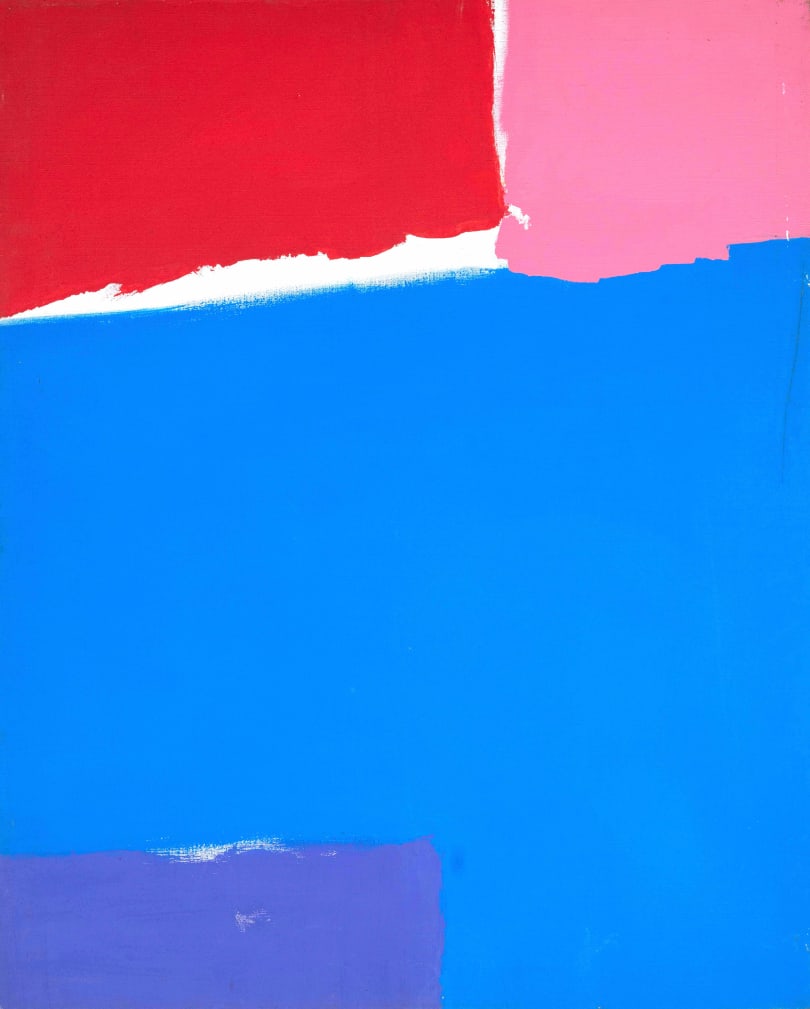
Ceux d'Ana
Category
PaintingTechnique
Acrylic on canvasDate
2021Dimensions
100 cm x 100 cmArtwork information
Category
PaintingTechnique
Acrylic on canvasDate
2021Dimensions
100 cm x 100 cmSignature
Signed and dated on the backProof(s) of authenticity
Painting sold with a certificate of authenticity issued by the painter Gérard SchlosserState of conservation
Very goodFraming
YesLocation
Toulouse, FranceDescription
"Ceux d'Ana" ("Those of Ana" in English) is a beautiful acrylic on canvas by Gerard Schlosser. It was painted in 2021, it is signed and titled on the canvas back.
This painting is offered in a black American box frame. Dimensions of the painting without frame : 100 x 100 cm and dimensions with frame : 107,5 x 107,5 cm.
Provenance
Gérard Schlosser's studio
The artist

Bio
Gérard Schlosser was born in Lille on June 13, 1931. He studied at the École des arts appliqués de Paris between 1948 and 1951, where he studied goldsmithing. He then enrolled at the École des Beaux-Arts in Paris for a short period. In 1953, Gérard Schlosser decided to devote himself fully to painting. He made this bold choice just after attending a theatrical performance of the play En attendant Godot.
From his first paintings, Gérard Schlosser decided to turn to figuration and fragments of bodies painted in flat tints and surrounded by black and shadowy areas. His paintings are reminiscent of the research of Pop Art artists, a movement that originated in Great Britain. The choice of figuration was therefore a turning point in the artist's career, since Gérard Schlosser still paints figurative pictures today.
In 1967, he began to glue his canvases with sand, which gives a very particular vibration to the colored surfaces of his paintings. This choice was decisive for his art, because each small grain brings depth, a part of shadow and a part of light that makes the difference when you are in front of one of his pictorial creations.
Gérard Schlosser can be considered as the painter of the "fragmentary choice". In 1970, he used photography and the technique of photomontage, and sometimes cut-outs. Thereafter, he systematically used this process as did certain French artists associated with hyperrealism or narrative representation such as Bernard Rancillac, Gilles Aillaud, Gérard Fromanger and Jacques Monory.
It was in the 1970s that the use of the episcope became widespread, this object allows the projection of an image on the surface of the canvas. In 1977, the painter participated in the exhibition Mythologies quotidiennes 2 alongside Monory, Rancillac, Fromanger and Aillaud.
Gérard Schlosser is very inspired by the cinema, each of his works tells a story, he gives great importance to the titles, they have a role of narrator, they enrich the story of the painting and even extend it. Gérard Schlosser's titles inform and give indications to the viewer, they are a kind of compass that accompanies him in a pictorial journey refocused on the point of view chosen by the painter.
Like a filmmaker, Schlosser sets up a storyboard that leads contemporary art lovers to an often seductive destination. His paintings tell of everyday moments and show elements from body parts, pieces of clothing, and very particular points of view that only the greatest film cameramen or Gérard Schlosser could have imagined.







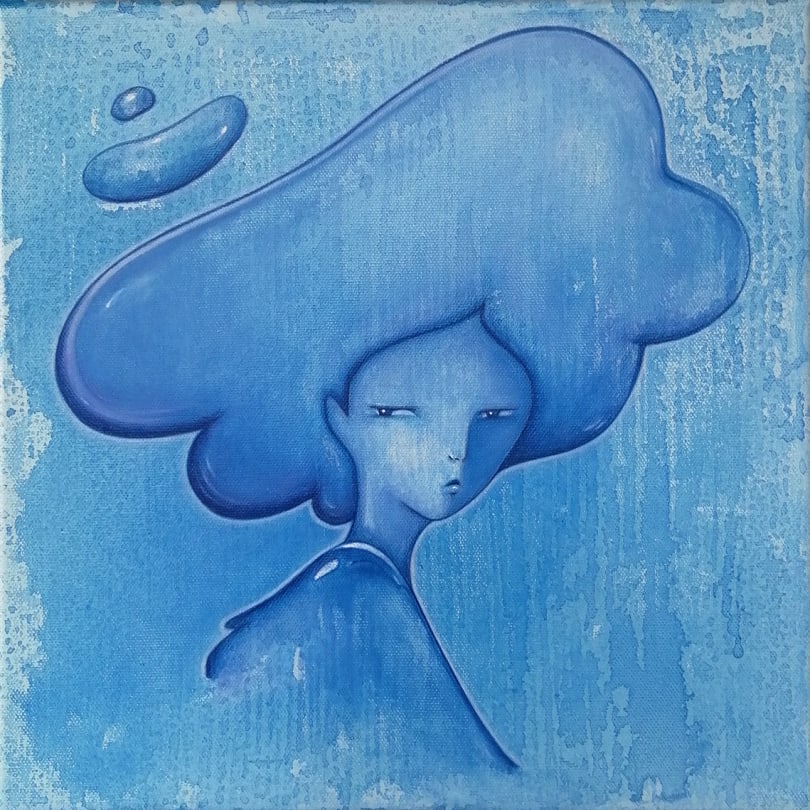



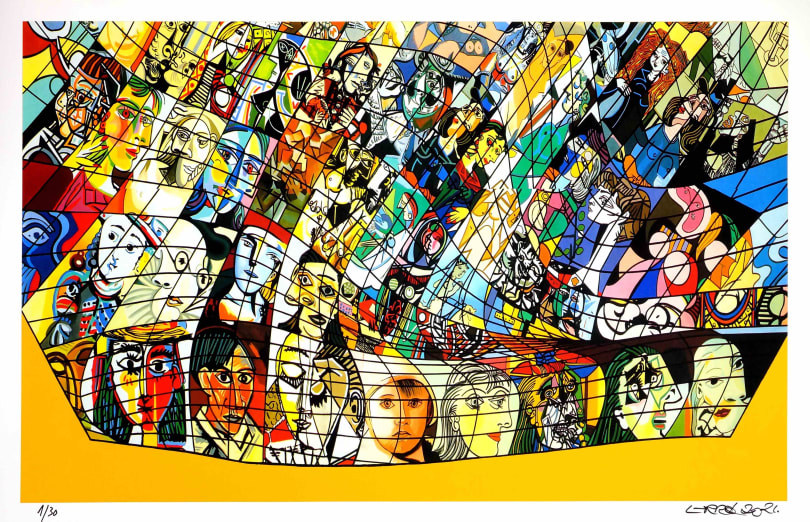
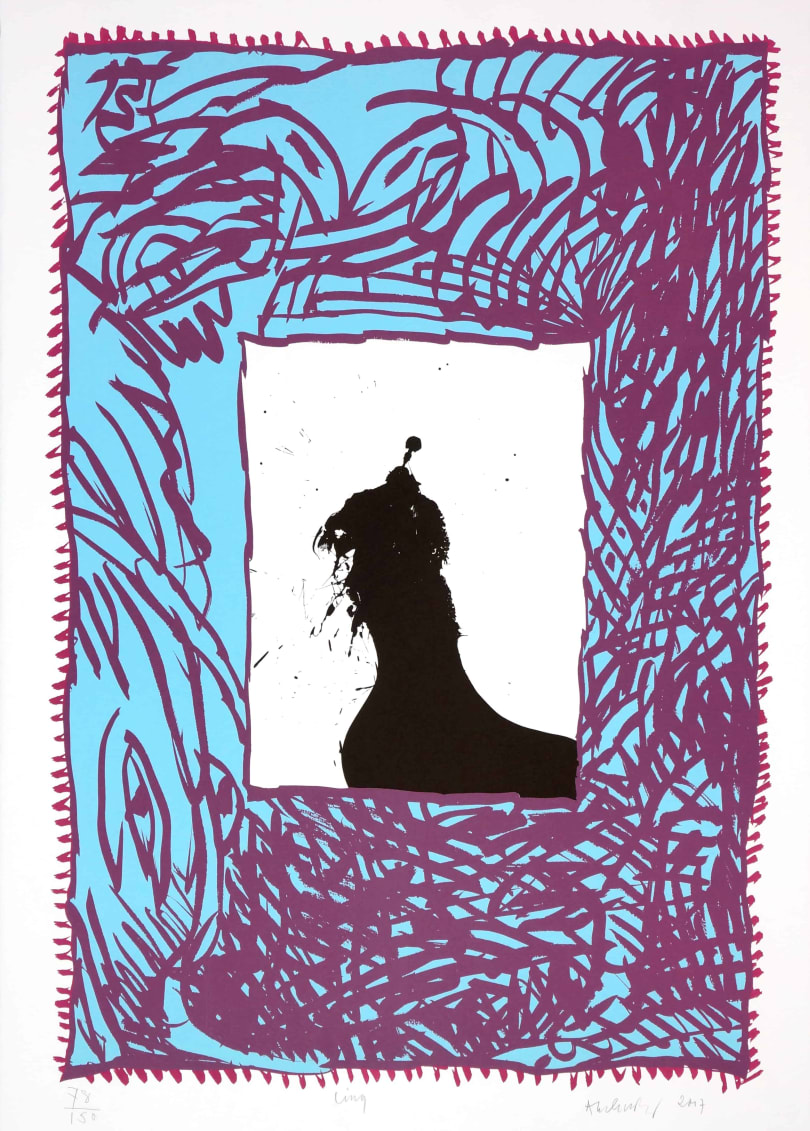







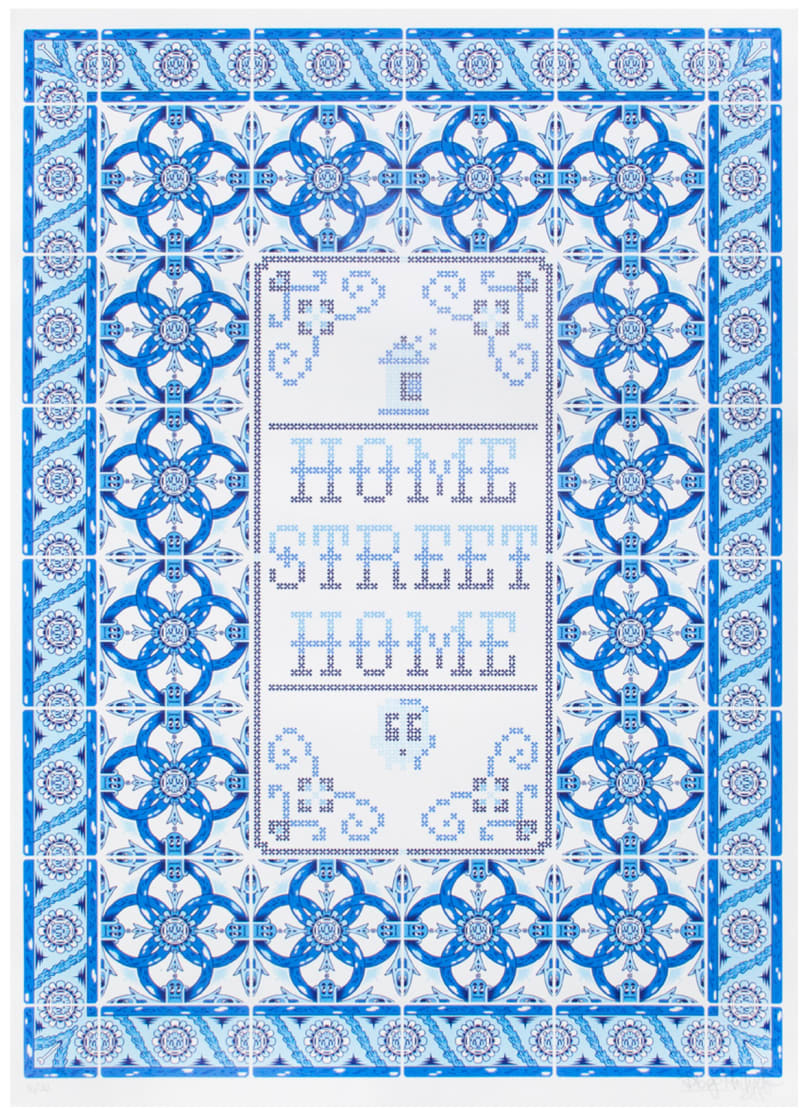


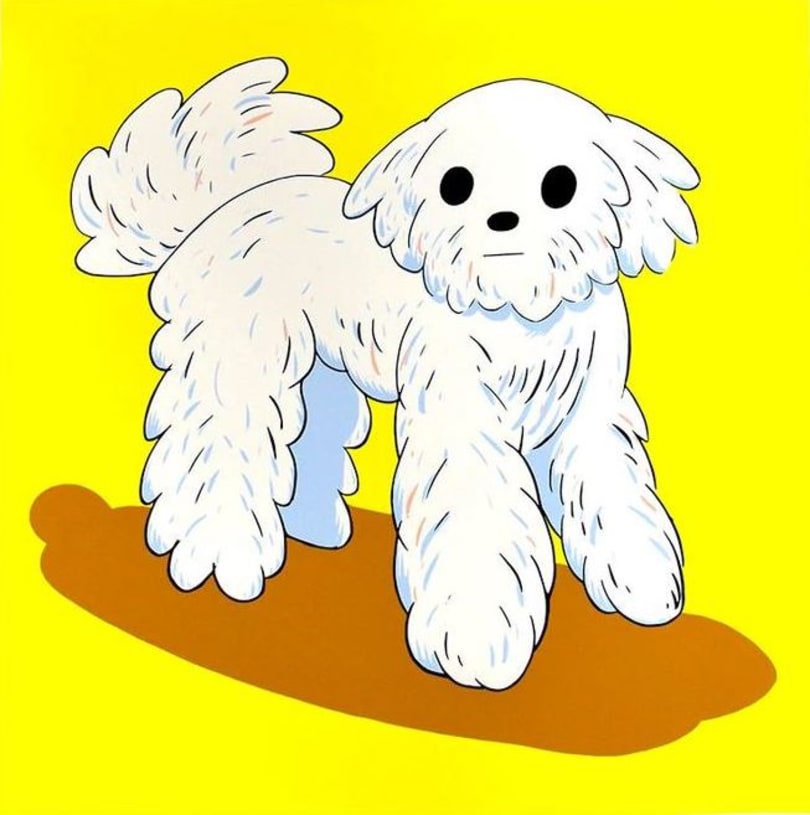
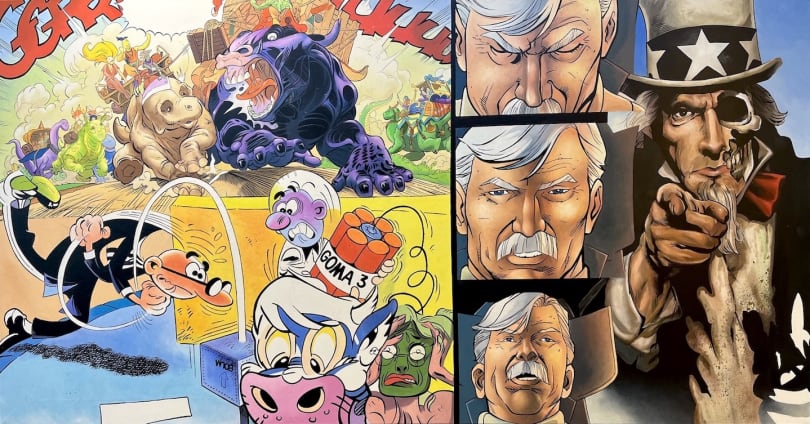


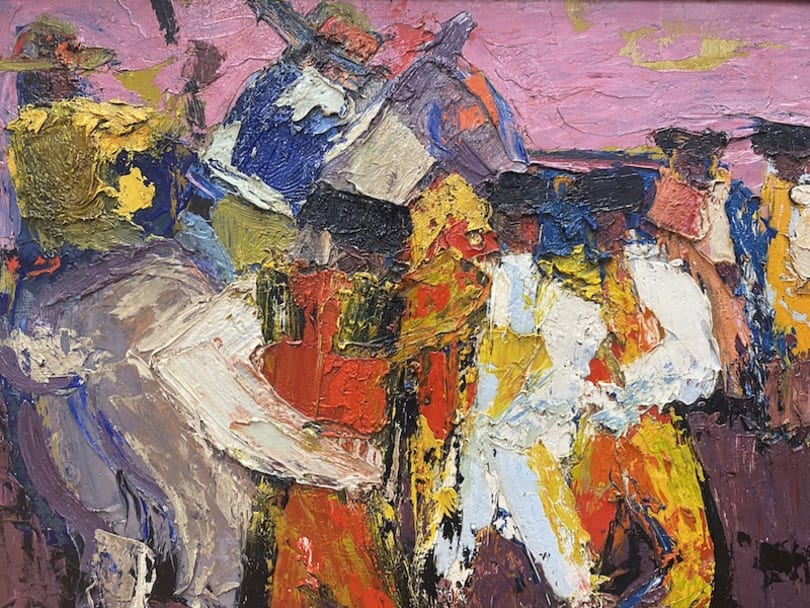
.jpg)


.jpg)


